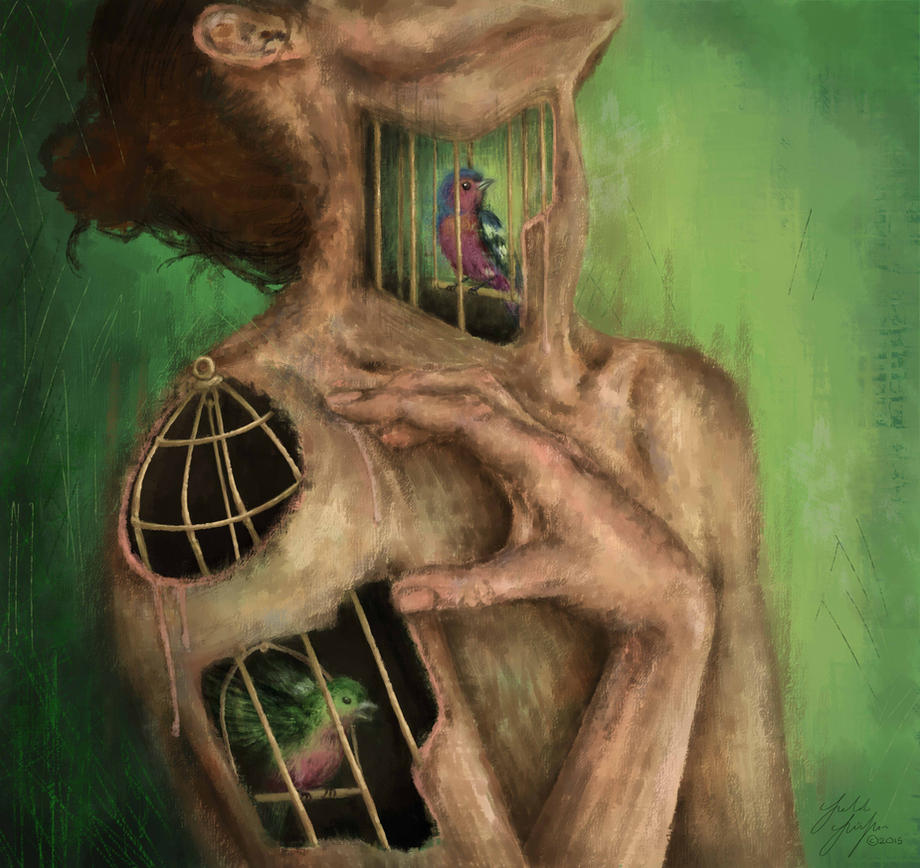You Are Why My Caged Bird Sings
You are why the caged bird sings.
You left us one day on angel’s wings.
The cage couldn’t hold your spirit.
You now fly high and free.
With a backward glance you left
and soared to heaven,
While my caged bird still sings.

Where the Caged Birds Sing -- artistickaya
Paul Laurence Dunbar may have been the 1st African-American poet to compare his people's plight to a caged bird, in "Sympathy":
ReplyDeleteI know what the caged bird feels, alas!
When the sun is bright on the upland slopes;
When the wind stirs soft through the springing grass,
And the river flows like a stream of glass;
When the first bird sings and the first bud opes,
And the faint perfume from its chalice steals--
I know what the caged bird feels!
I know why the caged bird beats his wing
Till its blood is red on the cruel bars;
For he must fly back to his perch and cling
When he fain would be on the bough a-swing;
And a pain still throbs in the old, old scars
And they pulse again with a keener sting--
I know why he beats his wing!
I know why the caged bird sings, ah me,
When his wing is bruised and his bosom sore,--
When he beats his bars and he would be free;
It is not a carol of joy or glee,
But a prayer that he sends from his heart's deep core,
But a plea, that upward to Heaven he flings--
I know why the caged bird sings!
Decades later Maya Angelou used the line for the 1st book in her 7 volume autobiography, "I Know why the Caged Bird Sings" (1969) and later used the image in a separate poem, "Caged Bird":
A free bird leaps
on the back of the wind
and floats downstream
till the current ends
and dips his wings
in the orange sun rays
and dares to claim the sky.
But a bird that stalks
down his narrow cage
can seldom see through
his bars of rage
his wings are clipped and
his feet are tied
so he opens his throat to sing.
The caged bird sings
with fearful trill
of the things unknown
but longed for still
and his tune is heard
on the distant hill
for the caged bird
sings of freedom
The free bird thinks of another breeze
and the trade winds soft through the sighing trees
and the fat worms waiting on a dawn-bright lawn
and he names the sky his own.
But a caged bird stands on the grave of dreams
his shadow shouts on a nightmare scream
his wings are clipped and his feet are tied
so he opens his throat to sing
The caged bird sings
with a fearful trill
of things unknown
but longed for still
and his tune is heard
on the distant hill
for the caged bird
sings of freedom
(It should be noted, however, that Mary's poem is not about joy despite oppression, but rather about bereavement.